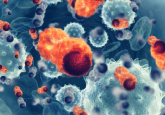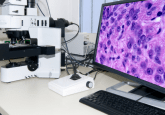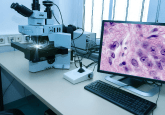ESMO-GROW: the first oncology-specific guidance for real-world evidence reporting

The European Society for Medical Oncology publishes ESMO-GROW, inaugural Guidance for Reporting Oncology real-World evidence.
The European Society for Medical Oncology (ESMO) has produced the very first expert-based guidance for reporting real-world evidence (RWE) studies specifically for oncology. The publication addresses nuances of modern RWE research in oncology and provides a comprehensive list of detailed key recommendations – that have also been transcribed into an interactive informative scoring checklist tool – for full article development in different RWE research scenarios.
ESMO Guidance for Reporting Oncology Real-World Evidence (ESMO-GROW) has been developed by ESMO’s multidisciplinary panel of experts in collaboration with external stakeholders and published in two of their flagship journals: ESMO Real World Data and Digital Oncology and Annals of Oncology.
“This project was initiated by a group of experts who agreed that there was an important unmet need to develop a modern and specific guidance to report oncology RWE studies,” commented lead author Luis Castelo-Branco. “Considering this is a growing and rapidly evolving field, we expect ESMO-GROW to be widely used within the oncology research community, including authors, reviewers and journals.”
The publication features a detailed list of recommendations concerning each section of full article development, providing clear guidance with the goal of facilitating harmonized interpretation by authors, editors, reviewers, and readers. The recommendations have also been transposed into an online interactive informative scoring checklist to be used by the cancer research community to facilitate the writing, reviewing and publication of RWE studies. Available free in a new dedicated section of the ESMO website, the checklist tool allows single recommendations to be browsed to keep track of whether they have been fully, partially or not applied to the RWE study in question, producing a final score that offers authors and reviewers an estimate of the level of completeness and accuracy of their reporting.
ESMO-GROW can be used for all types of RWE studies, including both descriptive (e.g., epidemiological, public health, treatment patterns) and analytical (e.g., explanatory, prognostic and/or predictive) research. It also covers key aspects of novel designs, such as target trial emulation or quasi-experimental oncology studies, and guidance for clinical trials using real-world data (RWD), such as pragmatic clinical trials or trials with a synthetic control arm.
The guidance addresses several particularities of modern RWE research in oncology, including the rapid development of novel treatment strategies for subgroups of patients, recent trends for molecular-based epidemiology analyses, considerations on oncology-specific variables or outcomes, and the increased use of patient-reported outcomes and digital health, as well as novel research designs and the increased use of artificial intelligence, machine learning and deep learning in this field.
Luis Castelo-Branco voiced, “ESMO-GROW includes diverse dimensions of modern RWE research in oncology, such as the growing utility of novel biomarkers and therapeutics, cancer data sources, diverse study designs, emerging strategies for data sharing and interoperability, or the growing utility of artificial intelligence also for cancer research.”
The increasing number of innovative anticancer treatments naturally leads to the use of observational studies to reduce the gaps of evidence for various subgroups of patients, contributing to the rapidly evolving field of RWE studies.
“While clinical trial populations are prone to selection bias, high-quality RWD may demonstrate the true effects of innovative trial results for the general population,” said Dr Miriam Koopman, co-author and Chair of the ESMO Real World Data and Digital Health Working Group. “High-quality RWD will provide more insight into the increasingly small subgroups that we identify for which a randomized clinical trial is not feasible. All this will not only facilitate decision-making by healthcare authorities, but also benefit scientific research. Ultimately, clinical guidelines can be supplemented with high-quality RWD, which can benefit patients by facilitating individualized treatment advice.”
Want regular updates on the latest real-world evidence news straight to your inbox? Become a member on The Evidence Base® today>>>






